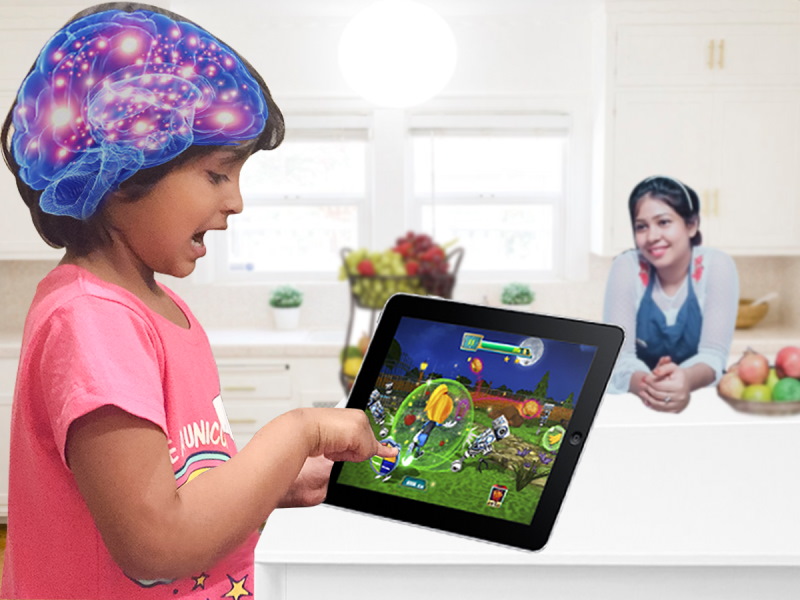Pharma still reluctant to back gamification for health; interview

The pharma industry has been making great strides forward in digital health, but one element of that – gamification – hasn’t yet made much headway in the sector. Armed with new data from a randomised clinical trial, one company is hoping to change that mindset.
The company is FriendsLearn – based in India and with an R&D office in San Francisco – which recently reported results from a trial showing that its fooya! app was able to induce healthy food and lifestyle habits among a group of 104 children aged 10 to 11.
FriendsLearn hopes that use of gaming apps like fooya! could help to curb rising levels of childhood obesity among children, using neuroscience, artificial intelligence and virtual reality to improve dietary choices, physical activity and health literacy.
[caption id="attachment_75289" align="alignright" width="200"] Bhargav Sri Prakash[/caption]
Bhargav Sri Prakash[/caption]
The company’s founder and chief executive Bhargav Sri Prakash told pharmaphorum that the clinical study, published in the journal JMIR mHealth and uHealth, showed that just 20 minutes of gaming time a week had a strong positive impact on children’s food choices when polled immediately following the game.
“Our methods of gamified neuro-cognitive training have been designed and built to stimulate the brain of children in specific ways, through patterns of messaging and exposure to visual, auditory, and tactile stimuli,” he said.
“This trial validates effective transference of our neuro-modulation methods to behavioural outcomes, while validating the appropriate level of dose exposure.”
In fooya!, an avatar fights against robots that represent unhealthy/bad foods, with the aim of maintaining a good body shape for the avatar and earning enough coins to win the level and unlock the next stage. Avatars perform better if they eat healthy foods and move a lot, and are slower and heavier as they consume more calories.
Sri Prakash describes FriendsLearn’s approach as administering a “digital vaccine” that along with changing habits could induce an immune response through biological pathways of the gut-brain axis – a two-way communication channel linking emotional and cognitive centres of the brain with peripheral intestinal functions.
The company is continuing to evaluate fooya! to generate real world evidence about its effects, as well as to monitor for any side effects, with the help of collaborators at Carnegie Mellon, Johns Hopkins Bloomberg School of Public Health, and Stanford University in the US, as well as the National University of Singapore.
Meanwhile, its turning its attention to other apps, notably fooya!D aimed at people living with diabetes, which is undergoing clinical testing in the US and India.
“fooya!D is designed to cater to paediatric diabetes populations, to assist them with self-care through better adherence to clinically prescribed diet and lifestyle, as well as in regulating their glycaemic levels through the appropriate use of insulin,” said Sri Prakash.
Also in the pipeline is a pair of apps – dubbed FYA-003 and FYA-004, respectively – that are intended to help people prevent infection with SARS-CoV-2 and influenza viruses, for example by encouraging hand washing, disinfecting surfaces, social distancing, etc.
While the data is starting to emerge on gaming apps for health, there is still a disconnect between the two sectors that is preventing more widespread adoption, according to Sri Prakash.
“There has not been visible precedent for commercially successful companies that have defended the viability of this space at the intersection of these disparate industries,” he said.
He warned that pharma risks being left behind in the area of gamification, allowing itself to be superseded by other players through a reluctance to back the approach with any deep conviction.
A high level of commitment would be required to take on the high standards for consumer-level engagement that is being set by big-budget productions by studio, as well as “deep skills in design and analytics-based iteration.”
At the same time, healthcare companies meanwhile have a whole different set of issues to contend with - clinical trials, patient data, regulatory pathways, physician buy-in, and reimbursement models – which are alien to the gaming sector. And added to that, sources of risk capital to fuel innovation have also existed in silos of expertise.
“While the opportunity to build evidence-based healthcare solutions with game-like engagement and sophistication, is abundantly clear, the cost of this multidimensional innovation is high,” said Sri Prakash.
“The opportunity is vast and investors that have the appetite for category creation are beginning to see the potential, especially given the momentum for digital health.”












